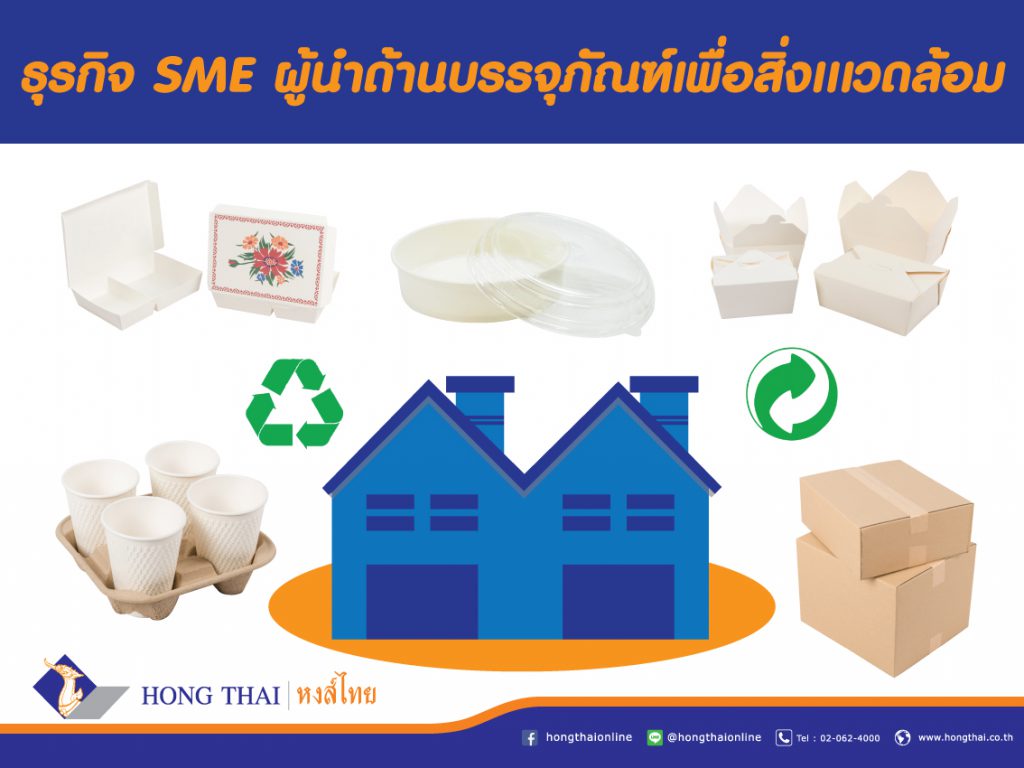Due to environmental issues and pollution caused by waste disposal, particularly food and beverage packaging waste such as foam and plastic, campaigns and green organizational policies have been set up to help conserve the environment. These policies focus on encouraging businesses, both small and large, to choose eco-friendly packaging made from natural materials that are biodegradable and do not cause pollution to the environment.
SME Businesses Leading in Eco-Friendly Packaging
SME businesses are medium and small-sized enterprises that play a crucial role in conservation and are leaders in choosing eco-friendly packaging. This is because they cover three major sectors, namely:
- Manufacturing sector, covering both agriculture and industry, with eco-friendly packaging materials being used the most, such as cardboard boxes for packaging crops and fruits, corrugated cardboard boxes, corrugated paper pallets, molded paper pulp, and corrugated sheets.
The most commonly used eco-friendly packaging materials include cardboard boxes for fruits and vegetables, corrugated cardboard boxes, corrugated paper pallets, molded paper pulp, and corrugated sheets.
- Trade sector, covering wholesale and retail, including both imports and exports or domestic trade.
The most significant eco-friendly packaging in the trade sector includes food and beverage packaging such as paper coffee cups, paper drinking cups, paper bowls, paper plates, and innovative eco-friendly packaging that can be microwaved.
3. Service sector, which may not have as much of a role in choosing eco-friendly packaging as they are service-oriented businesses.
Although SMEs are medium and small-sized businesses, they operate across three major sectors and use packaging in various sizes and forms, both for packaging and transportation purposes, in large quantities. For example, corrugated cardboard boxes and corrugated pallets are used to prevent product damage. By choosing eco-friendly packaging, SMEs become leaders in selecting environmentally friendly packaging and serve as role models for other businesses in sustainable environmental conservation.
SMEs and Green Organizational Policies
SMEs are independent businesses owned by private individuals, not influenced by other individuals or businesses. They are small organizations with relatively few employees, resulting in a simple management system. The decision-making power lies with the business owner. Adhering to green organizational policies to help conserve the environment by using packaging made from natural materials and following the framework set by the committee to meet the green organization standards is not difficult.
Typically, businesses or entrepreneurs starting their own brand face numerous challenges, including finding markets, studying consumer behavior, maintaining product quality, and making the brand and product known to customers. However, today, as long as entrepreneurs or businesses prioritize designing eco-friendly packaging and making the packaging suitable for their products, they can create demand for their brands and products.






